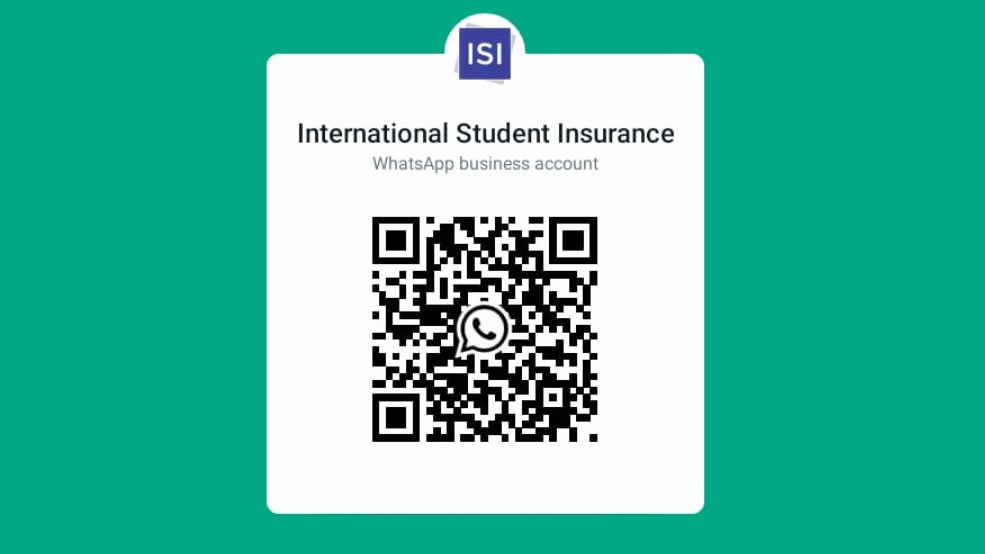Essential Services Abroad
May 11th, 2022 by Melissa MadrigalYou’ve taken the first vital step towards being in a different country– this may be as a traveler, a scholar, or even a student. Congratulations! However, now that you are outside of your home and your health insurance is taken care of, there are still many resources that perhaps you have not thought about but will need to navigate through once you arrive at your destination.
We want to make the transition as easy as possible for you by providing some tips and resources you can use to be as safe, happy, and successful as possible during your time abroad!
- Find your nearest firefighter station
Firefighters are one of the most important services in any city, since they not only protect people, spaces, and structures from fires, but also serve as the frontline emergency medical responders, help with rescues, and assist in traffic accidents. Knowing where and how close a station is to you could help you build an emergency plan if you ever need it.
- Make a list of the medical services in your area
Knowing where your nearest medical providers are could help you or the people around you in both emergency and new medical situations. If you have already purchased a plan with us, you can utilize our online search tools for in-network providers in your area, by simply typing in your ZIP code.
- If you have a Patriot Travel, Patriot Exchange, or Student Health Advantage plan: https://www.internationalstudentinsurance.com/network/img/uhc.php
- If you have an Atlas Travel or Student Secure plan: https://www.internationalstudentinsurance.com/network/
- If you have an ISI Protect plan: https://www.internationalstudentinsurance.com/network/pcu.php
- Locate schools near you (elementary through university level)
Even if you are not a student or have dependents that will be studying, knowing where the schools in your area are can give you an additional set of services. Many universities especially offer access to food pantries, free events, libraries, and potentially healthcare if they have a student health center on campus. In recent years, they have also been hosts to voting centers, vaccinations/blood donation drives, and even emergency shelters.
- Find lawyers and/or immigration assistance
With ever-changing situations that can happen abroad, it is important to know your rights and responsibilities when you are outside your home country. Knowing how and where to find legal services could make a big difference.
- Make note of your closest embassy/consulate
Nobody wants to think about emergencies but with the experience of the past 2 years, knowing the location of your closest embassy/consulate could help you in the case of disaster/emergency. These centers can assist you if there are any immigration updates, war, evacuation needs to your home country, or even passport/visa loss, so it is a good idea to have their address and phone number on hand.
- Find banks and ATMs close by
This may seem like an obvious suggestion, especially if you will be staying abroad for a while. However, banks have many benefits that could help you with your finances. They can help you obtain foreign currency, learn about loans, assist in withdrawing deposits or transfers from your family, and even give you special discounts for your purchases so you make the most of your expenses.
- Transportation
No two cities are the same, so don’t forget to research how you will be able to move around in your new temporary home. Will you need to buy/rent a car? Can you use public transportation? Is it a city where you can mostly rely on walking or biking? Knowing this will not only let you explore your new city, but also know how you can run errands, how far away you can live from important centers, and even impact your budget. Many cities even offer apps to help you find routes and pay for tickets.
Although these are not the only important services you will need while abroad, we hope they give you a good starting point and help you during your journey!
How to deal with stress and anxiety when studying abroad
April 20th, 2022 by Alexis PonceBeing an international student can certainly be an exciting experience. Getting to travel to a different country, experiencing a different culture while studying your dream career is definitely a big achievement.
However, with great achievements, sometimes comes a lot of responsibility that can generate unusually high stress levels, also combined with the anxiety that might come from having to adapt to life in a new place and far away from your support group (family, friends or romantic partners).
Even though I haven’t been in an educational exchange program, I’ve also had to adapt to a new lifestyle after moving to a big city from a small town and I have dealt with high amounts of stress and anxiety of the uncertainty of the future after I had moved far from my loved ones. During this time, I had to seek help and learned a few strategies to help you cope with these feelings, and I would like to share them with you today.
It is important to note that stress is not the same as a mental health disorder, such as anxiety, but high stress levels could instead increase the risk of developing an anxiety disorder.
1. Take a break
Sometimes we’re so focused on doing well academically that we start to neglect some of our very important body needs, like drinking enough water, eating three meals a day, or even going to the bathroom with more frequency.
Scheduling short breaks into your daily routine (5 to 10 minutes) where you can put aside what you’re doing and do some light stretching, go for a short walk or do breathing exercises, can help you with lowering your stress levels in a way that can help increase your productivity. We’ll discuss breathing exercises in the next point!
2.Breathing exercises
 Did you know that hyperventilation is caused by a reduction of carbon dioxide on your blood, which occurs when your breathing is accelerated?
Did you know that hyperventilation is caused by a reduction of carbon dioxide on your blood, which occurs when your breathing is accelerated?
Hyperventilation is a physical symptom of high stress and/or anxiety, and it is typically experienced when having a panic attack. In order to avoid hyperventilating, it is important that you practice slow breathing and I’d like to present you two tips to achieve this:
- Breathe in for four seconds, and then hold your breath for seven seconds. Then you can exhale in eight seconds and repeat this several times. It is important to spend a longer time exhaling than you do inhaling.
- You can breathe in and out in sync with this gif! You can download and keep it in your mobile device so that you have easy access to it, in case you need it.
 . (Source:https://www.duffthepsych.com)
. (Source:https://www.duffthepsych.com)
3. Keep a healthy, balanced diet, avoiding too much caffeine, nicotine or alcohol
A diet rich in vitamins and minerals (found in fruit and vegetables) can also help you when you’re suffering from stress and anxiety, since a well nourished, strong body can cope better with both of these, therefore, try to not skip any meals!

Additionally, try to decrease your caffeine, nicotine and alcohol intake. Caffeine and nicotine are stimulants that can worsen anxiety symptoms and alcohol is a depressant of the nervous system, which can contribute to enhancing any bad feelings you have about a specific situation, and if you’re using it to relax or cope, which can cause you to become dependent on it.

4.Exercise
 Did you know that exercise releases chemicals called endorphins into your body? Endorphins are also known as “feel good chemicals” which can have a calming effect on somebody that is stressed and/or anxious.
Did you know that exercise releases chemicals called endorphins into your body? Endorphins are also known as “feel good chemicals” which can have a calming effect on somebody that is stressed and/or anxious.
After I had just moved to a different city, I started to become depressed and started to receive counseling to deal with the anxiety of having to adapt to an entirely new place. My psychologist recommended that I exercise everyday for at least 30 to 40 minutes, and I did as she told me, even though back then, I felt tired all the time. It did work to lower my anxiety and stress levels, and to make me feel better overall. In addition to helping improve your mental health, exercise can also help your physical health by decreasing the risk of developing illnesses such as diabetes and high blood pressure.
5. Get enough sleep
Stress and anxiety can definitely prevent you from having a good night’s sleep, but did you know it can also be the other way around? Not sleeping enough can also bring your body to experience higher levels of stress and anxiety. Sleep deprivation can also affect your learning skills and memory.
Learning how to breathe, a healthy diet and regular exercise can certainly help with sleeping issues, but another thing that can help is avoiding the use of screens for at least 30 minutes before your bedtime. I find that lavender essential oil rubbed on my temples or sprayed on my pillow is an excellent aid when I’m having sleep problems.

It is important to acknowledge that sometimes we need professional advice to help us overcome anxiety so we encourage you to seek help. Some colleges or universities offer free counseling sessions for their students, and we recommend that you reach out to your international student advisor so that they can guide you towards the resources that might be available to you as an international student.
In the meantime, we hope this simple lifestyle advice can help you be more relaxed and less anxious so you can fully enjoy the international education experience!
International Student Insurance is just a click away; Introducing WhatsApp live chat!
March 23rd, 2022 by Antonio Zapata
We are happy to announce that the WhatsApp live chat is now available!
We are always striving to provide efficient high-quality service to our customers and members, and we worked on developing this feature so it would be easier to contact us and get personalized assistance.
Through our WhatsApp live chat, our service team will be able to assist you with any type of request or inquiry. We can assist you with the following and much more:
- Find the right insurance plan for you
- Provide personalized quotes
- Help you understand our insurance plans
- Guide you through the claims process
- Update personal information
- Extensions and renewals
In addition, you will be able to send us documents such as waiver forms, insurance certification forms, lists of requirements, or any other document that you would like us to review or fill out for you.
How do I use the WhatsApp live chat?
We strive to facilitate the insurance process for our customers and this is no exception. Connecting with us through WhatsApp is designed to be as easy as possible. You can follow the steps below to start a chat with us:
- Go to the Contact Page

2. Choose WhatsApp from the online chat options

3. Open the WhatsApp app on your phone and go to Settings. Then click the QR icon you can find right next to your name

4. Scan the QR code you see after choosing WhatsApp from the online chat options
After following the steps listed above, you will be all set to start a chat and speak with an insurance agent!
This new way to connect with us will be convenient for our customers as they will be able to get personalized assistance right away. This feature will allow them to speak with an agent that will focus on helping with their health insurance needs and answer any questions they may have.
If you have any questions regarding our plans, need a plan recommendation, or need assistance with your existing insurance policy, please do not hesitate to contact us through our WhatsApp live chat!
Your Insurance Questions Answered!
February 17th, 2022 by Natalie HollandIt is finally here! The semester you have been waiting for: your first semester in the United States. You packed your bags and arrived at your new university, and there are so many new things to experience. Unfortunately, not all of them are going to come easily. With our help, though, learning about your insurance plan won’t be one of the hard ones!
We gathered some of the top questions international students are curious about regarding our plans and have answered them all for you below. Here are your insurance questions answered.
I’m pregnant! Can I buy a plan to cover my delivery?
If you are already pregnant before buying a plan, unfortunately, the delivery will not be covered under our policies. However, on our Atlas Travel Medical plan, there is coverage for complications of pregnancy for the first 26 weeks. If you are not pregnant and want to purchase a plan that includes maternity coverage for future pregnancies, please give us a call, and we are happy to go through our plan options with you!
What if I need dental coverage?
Our plans include a small amount of dental treatment due to an accident or because of sudden pain. To learn about the exact amounts, please call or email as it may differ based on the plan that you purchased! If you are looking for dental coverage for things like cleanings, wisdom teeth, or root canals, you may be interested in purchasing a Discount Dental plan.
Do I have an online account I can access?
After purchasing a plan with ISI, you have access to an online Student Zone where you can find all the information you need to successfully manage your insurance. From this account, you can extend coverage, access claims information, download your ID card, and more. We recommend registering for your Student Zone account right away, so you don’t miss out on any important information!
What is an insurance network?
An insurance network is a group of doctors or hospitals that work with your plan. This means that they are often already set up to directly bill the insurance company for your visit. To find out which network your plan uses, check your ID card for logos. Some common provider networks on our plans include United Healthcare or Multiplan. Luckily, we have a provider search for all of our policies where you can put in your address and find all the doctors and hospitals around you that are in-network! You can access this through your Student Zone or contact us for more information.
Remember, if you do not go in-network, meaning you visit a doctor that does not work with the plan, you may be required to pay for your visit up front and file a claim to be reimbursed. Your coverage also might not be at the same level out-of-network; check your policy certificate for more details.
To learn even more about insurance provider networks, visit our online resource here.
After I go to the doctor, do I have to worry about filing my own claims?
When you go in-network, the doctor should be set up to directly bill the insurance company for your treatment, as we mentioned above. However, even if you provide them with your ID card and they send the bill to the insurance company, you do still need to file a claim on your end. Fortunately, filing a claim is as simple as filling out the claim form in your Student Zone and emailing it to the insurance company. For fastest processing, please include a copy of your visa and passport in this email. If you have a student plan, you might also need to provide proof of student status. Additionally, if you paid for any treatment up front yourself, be sure to include all receipts with your claim.
You can read more in-depth about claims and the process here.
If you have any specific questions about your insurance plan or need help deciding which policy is best for you, contact us! Our licensed agents are waiting to assist you by phone, email, or live chat.
How to Make the Best of Your Holidays While Staying on Campus
December 22nd, 2021 by Natalie HollandWith the continuation of the COVID-19 pandemic, this holiday season might not look exactly how you planned it. Many of us started making plans again and maybe even bought plane tickets home to see our families, only to have the Omicron variant keep us stuck in our dorm this December. It is disheartening to let the holiday season pass without seeing our loved ones, but safety is the biggest priority this year. Being alone doesn’t have to lead to boredom, though! Here is our list of things you can do this holiday season from your dorm to get in the spirit and stay safe.
Stay Entertained
- Did you know that most of your favorite board games have an online version? While you might not be in the same room as your sister, you can still beat her in Monopoly! Schedule a game night with your family virtually and experience all the chaotic fun of being home for the holidays.
- Nothing makes your dorm feel more like home than filling it with the smells of your favorite dish. Does your family usually make a specific meal around the holidays? Why not try out the recipe yourself? I know my family has a rather odd tradition of making chili around the holidays. So this year, I will be making my own pot in honor of my family.
Stay Healthy
- If you start to feel sick, be sure to take proper procedures if you decide to seek treatment. Check to see if your insurance plan has a telemedicine service so that you can talk to a doctor on the phone. If your plan is with International Student Insurance, write us a quick email, and we can let you know if this is included in your policy.
- If you can’t see a doctor online, call your local urgent care to see if they are open. Most of them will be open even during the holiday. If you think you may have COVID-19 let them know so they can prepare ahead of time and inform you of the necessary steps.
Stay Mindful
- The holidays can be a hard time to be without your family and friends. It is okay to feel sad or disappointed. However, try to focus on the positives of the season. You can create new memories and traditions for years to come. You can take time to clean out your space and refresh it for the new year. You could even see if a local friend has room for one more at their dinner table should COVID-19 regulations allow.
- If you are having a hard time, there are volunteers and professionals that can help. If you just need to talk, why not try calling a warmline, it is like a hotline but for less urgent or immediate crises. You could also join a support group 24 hours a day through Inspire moderated by mental health counselors. You can learn more about support during the holidays below.
This year, let’s create new memories from the comfort of our living room. Even if you are spending the holidays by yourself, you are not alone. International students all over the United States are unable to return home for winter break and are experiencing similar hardships. Have more ideas on how to make the best of your holidays while staying on campus? Let us and your fellow international students know below!
How to deal with homesickness as an international student
November 10th, 2021 by Alexis PonceHomesickness can be defined as the feelings of sadness, anxiety or stress you may feel when you’re away from the people and places that are familiar to you.
After spending months surrounded by family and indoors, for the new international students that may be traveling for the first time to study abroad, homesickness is going to prove to be a greater challenge than pre-pandemic.
Being away from your loved ones (family, friends or partners), your pets, and your traditions might be difficult when you find yourself in a different country and culture, and sometimes even a new language.Though I haven’t been an international student, I can relate to being homesick, having moved from my hometown to a big city, where the weather, rhythm of life, and the people were so different from what I was used to!
Here at International Student Insurance, we want to present to you some tips that might help you cope with feeling homesick while you adapt to the new place and people that surround you.
Yes, we understand that you might have to focus on your studies, particularly if you have a scholarship, but allowing yourself to express your emotions is a healthier way to cope than bottling everything up. I have found a useful strategy to set a time during the day to cry or just feel sad, since letting your emotions out in a controlled environment will allow you to move on and focus on other important responsibilities throughout the day. Another way to cope is by journaling and putting your feelings in writing. You’ll realize that, as time passes, you will start feeling more at peace with the idea of being away from home!
Sometimes the feelings of homesickness are not only attached to people, but also places that we enjoy visiting. We all have that one favorite spot in our cities; it could be places such as a coffee shop, library, or even a place where you can be close to nature, like the woods of the beach. For example, my favorite spot in my city is a cafeteria around the corner, where I like to go sometimes on Saturdays to have coffee and lunch, and usually bring a book with me.I find that being surrounded by a comforting environment can help you cope when you are feeling blue or homesick. Even though being in a foreign country can be overwhelming at first, think of the many places that you can discover and how exciting getting to try different foods or activities in a new place can be!
Little acts of kindness towards oneself can make a big difference in your overall happiness and mood! Self-care may vary depending on the person. Activities such as cooking your favorite nutritious meal, taking a relaxing bath using your favorite products, or practicing meditation or yoga are examples of things you can do when you’re feeling sad and need to pamper yourself a little!
Did you know that exercising works wonders for your body when you’re feeling sad? When you exercise, your brain increases the production of serotonin, which improves your overall mood and increases your energy levels! Taking time to do things that make you happy can help you combat those feelings of homesickness.
This might be easier for some than for others, but creating new bonds in the host country will help you alleviate the feelings of homesickness. Don’t forget that, the same as you, many other international students might be dealing with the same feelings of missing home and you should think of this as an opportunity to get to know different people and their cultures! You might also want to check if your university or college offers clubs or activities that you can engage in, since that would help you keep yourself busy and interact with more people that have interests or hobbies similar to yours.
While calling your family once or twice a week when you’re away can ease the feelings of homesickness, calling them everyday might reinforce it! Therefore, it is recommended that you limit your contact with your loved ones while dealing with homesickness. Staying away from social media can also help with this, since you won’t be paying attention to what your friends or family are doing back in your home country. Instead, focus on exploring your new surroundings and meeting new people!
Feeling homesick when you first begin your international studies is completely normal and usually temporary. However, if you notice a change in your eating and sleeping habits and you’re feeling tired and unmotivated, you might be dealing with depression and depression isn’t something you want to ignore. If you’re feeling like this, talk to somebody! You’re not alone! Many universities offer free counseling for their students and there are also other resources that you can use. You may find some useful resources below:
The 2021 Travel Video Contest is LIVE
September 23rd, 2021 by Natalie HollandIT’S HERE!
Every year, our friends at InternationalStudent.com host a contest showcasing international students from around the world. This year marks the 16th annual Travel Video Contest, with a brand new theme: community. Share how “community” has impacted or influenced you and your international education pursuit. We encourage you to be creative and interpret the word “community” however you choose, but some examples might include your family or your community at home, your new community during your international education, or an online community.
In order to be eligible for the 2021 Travel Video Contest, you must be at least 18 years old and either currently studying outside of your home country or planning to study abroad in the future. You must also follow the rules and regulations closely and submit a contest entry form that includes a valid link to your video.
Not only is the Travel Video Contest an excellent opportunity to showcase your video skills on an international level, it’s also an opportunity to win one of four cash prizes.
This year’s prizes are as follows:
- Grand Prize: $4,000
- Second Place: $500
- Third Place: $250
- Viewers’ Choice Award: $1,000
The deadline for applications is 11:59 PM, EST on Tuesday, 13 October 2021. All you have to do for a chance to win $4,000 is submit your video! What will you do with your winnings? Head over to the official contest page to get the full contest theme and details. We can’t wait to see what you make!
Hispanic Heritage Month
September 13th, 2021 by Yessica PratoEvery year between September 15 and October 15, Hispanic Heritage month is observed in the United States. The Hispanic Heritage month celebrates traditions, cultures, and contributions from Hispanic and Latin American countries. Let’s dive into a bit of a history lesson as to the origins of this month and the importance of the celebration.
The Origins
In the 1960’s, when the civil rights movement in the US was at its peak, Congress passed a legislation recognizing the Hispanic Heritage week. The dates were chosen as the kickoff coincided with several Independence Day celebrations from many Latin American nations. September 15 marks the Independence Day of countries like Costa Rica, El Salvador, Nicaragua, and Guatemala. This is followed by Mexico’s independence day (September 16) and Chile’s independence day (September 18).
Fast forward to the 80’s, former President Reagan signed into law the extension of the original legislation to a month. The Hispanic Heritage Month would now wrap up with Dia de la Raza (day of the race) or Indigenous People’s day (known in the US as Columbus Day in some states).
The Significance
As an international student, you know that when traveling to a different country, it’s important to immerse yourself in the culture of said country. That being said, the United States has long been a mix of many cultures and races, sometimes being referred to as a “melting pot” for the richness of diversity that the country offers. Additionally, according to the latest census date, the U.S. Hispanic population has increased almost 23% in the last 10 years and they have played a significant role in the growth of the population over the last decade.
Latin America is made up of 33 countries and each of them have different customs and traditions that have been brought to the United States over the years.
 Did you know? “Hispanic” and “Latino/a/x” are often used interchangeably. However, they represent two different things:
Did you know? “Hispanic” and “Latino/a/x” are often used interchangeably. However, they represent two different things:
- Hispanic refers to a person who is from or is a descendent of someone who is from, a Spanish-speaking country
- Latino/a or Latinx refers to a person who is from or is a descendent of someone who is from a country in Latin America
How can you be part of the celebration?
Hispanics and Latinos/as/x are well known for our vibrant culture and mouth watering gastronomy. We encourage you to explore the celebrations by grabbing a bite at a Latin American restaurant, visiting a museum, or partaking (responsibly and per CDC guidelines) in the celebrations near you.
Happy Hispanic Heritage Month!












